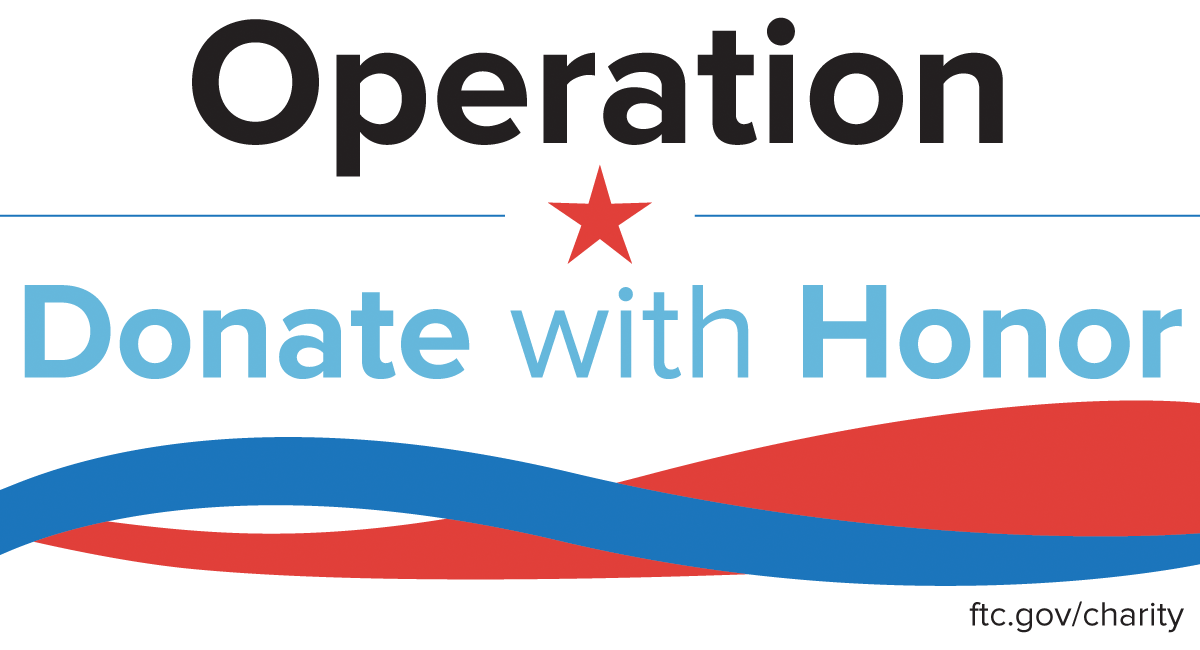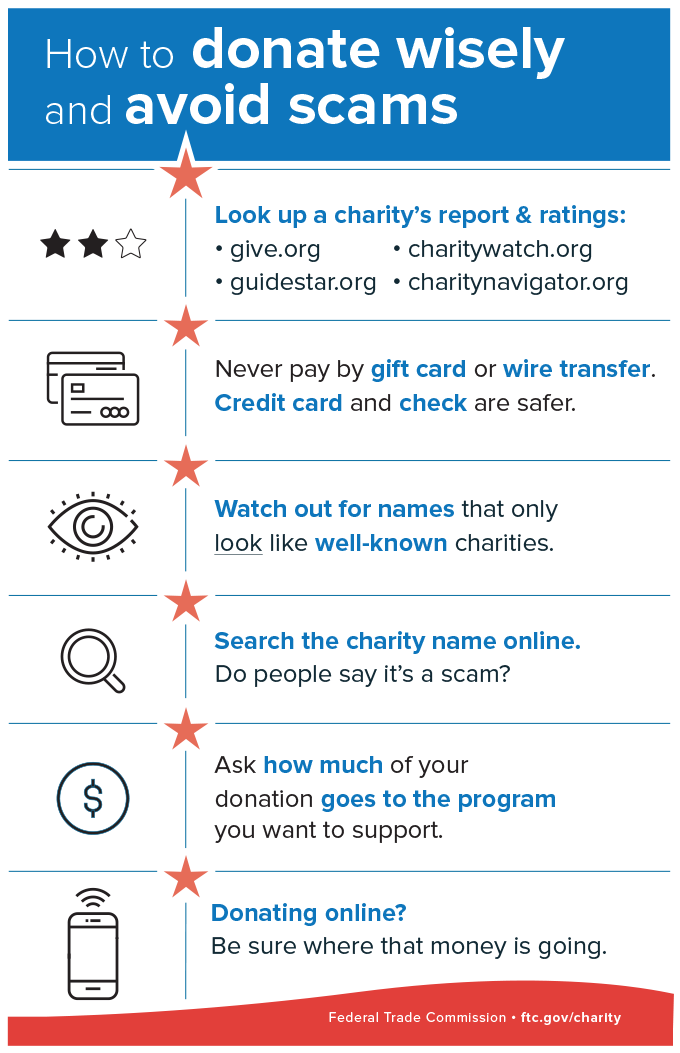There isn’t an actual procedure called an honest-ectomy. But when you hear allegations about scammers who solicit donations for veterans’ charities and then pocket the contributions, you’ve got to wonder. The FTC, 54 Attorneys General from all 50 states, the District of Columbia, American Samoa, Guam, and Puerto Rico, and 16 additional state agencies that oversee charities have joined forces to announce Operation Donate with Honor – a coordinated effort to target fraudulent and deceptive fundraising for military and veterans causes. As part of the initiative, the FTC has published tips for businesses and new resources to help ensure your corporate and individual contributions truly benefit servicemembers and vets.
 One striking feature of the more than 100 actions announced as part of Operation Donate with Honor is the breadth of the alleged illegality. Some operators claimed to be collecting for homeless or disabled vets and then simply kept the cash. Others spent the lion’s share on their own salaries and to hire for-profit fundraisers. In other examples, “charities” claimed to raise funds to send care packages or phone cards to deployed troops only to spend pennies for that purpose. The defendants duped donors in a variety of ways, including misleading door-to-door campaigns and solicitations outside stores, bogus raffles, deceptive direct mail, illegal telemarketing, and false statements on websites.
One striking feature of the more than 100 actions announced as part of Operation Donate with Honor is the breadth of the alleged illegality. Some operators claimed to be collecting for homeless or disabled vets and then simply kept the cash. Others spent the lion’s share on their own salaries and to hire for-profit fundraisers. In other examples, “charities” claimed to raise funds to send care packages or phone cards to deployed troops only to spend pennies for that purpose. The defendants duped donors in a variety of ways, including misleading door-to-door campaigns and solicitations outside stores, bogus raffles, deceptive direct mail, illegal telemarketing, and false statements on websites.
The FTC announced two cases as part of Operation Donate with Honor.
Help the Vets, Inc.
Veterans of America
If you have been thinking about donating your car, real estate, or timeshare to charity, please consider donating to Veterans of America. Donations are itemized tax deductible, and all real estate donations are deductible for full market value. We also accept most timeshares, so call us today at 1-800-669-0250. Thank you.
But according to the FTC, none of the names Peterson used in the robocalls is a real charity with tax exempt status, so donations to any of them are not tax deductible. What’s more, Peterson’s use of robocalls to ask for donations is unlawful. At the FTC’s request, a federal judge in Utah has issued a temporary restraining order prohibiting Peterson from placing unlawful robocalls or making misrepresentations about charitable donations while the case is proceeding.
(The FTC’s action challenged practices by Utah resident Travis Deloy Peterson and entities he controlled that used names like Veterans of America and Medal of Honor. The FTC has not taken action against other entities called Veterans of America, Medal of Honor, or similar names.)
 Resources for your business
Resources for your business
Despite the allegations in Operation Donate with Honor actions, there are many reputable charities – including charities devoted to veterans and members of the military – that are deserving of support. The FTC and its partners, including the National Association of State Charity Officials (NASCO), have tips and a new video available at www.ftc.gov/charity to help individuals and businesses give wisely:
- Look up a charity’s report & ratings. Check ‘em out on sites like the BBB Wise Giving Alliance, Charity Navigator, CharityWatch, and GuideStar.
- Watch out for names that only look like well-known charities. Just because an outfit has “veteran” or “military” in its name doesn’t mean it’s legit. Some of the worst offenders have been known to mimic the names of reputable nonprofits.
- Search the charity name online. Are people reporting that it’s a scam?
- Ask how much of your donation really goes to the programs you want to support. Some of the .org charity rating groups offer an independent assessment.
- Donating online? Be sure where the money is going.
Apart from your personal donations, your business is often approached for charitable contributions, too. You want your donations to go to reputable non-profits, and you want to avoid inadvertently associating your company with a questionable fundraising campaign. That’s why the FTC has two new publications specifically for the business community:
- Tips for Retailers: How to Review Charity Requests. When you lend your company name to a charity through a sponsorship or by allowing fundraising on your property, your reputation is on the line. Customers and members of the community may interpret that as a “stamp of approval” and feel safe to donate to a cause you’re championing. Therefore, before lending your business’ name to a charity or allowing solicitations on your premises, find out more about who’s doing the asking. This new article includes a simple form companies can use to get key information from charities seeking your support.
- Online Charitable Giving Portals. As many fundraising campaigns move to online platforms, this publication offers tips on ensure that their efforts comply with established truth-in-advertising principles.
Take a few minutes now to watch the new video and hear what two veterans have to say on the subject. And share tips with your social network to help ensure that contributions – including donations to groups serving servicemembers and veterans in need – go to the many reputable charities worthy of your generosity.
This post was updated on November 6, 2020.
